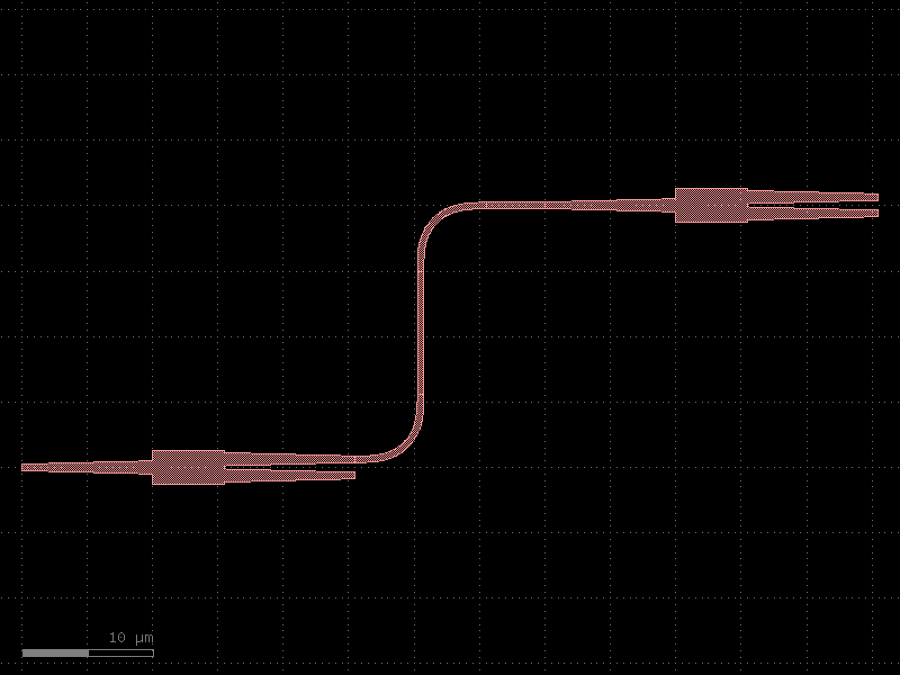- gdsfactory.routing.route_single(component: Component, port1: Port, port2: Port, cross_section: CrossSectionSpec | None = None, layer: LayerSpec | None = None, bend: ComponentSpec = 'bend_euler', straight: ComponentSpec = 'straight', start_straight_length: float = 0.0, end_straight_length: float = 0.0, waypoints: WayPoints | None = None, steps: Sequence[Mapping[Literal['x', 'y', 'dx', 'dy'], int | float]] | None = None, port_type: str | None = None, allow_width_mismatch: bool = False, radius: float | None = None, route_width: float | None = None, auto_taper: bool = True)ManhattanRoute
Returns a Manhattan Route between 2 ports.
The references are straights, bends and tapers.
- Parameters
component– to place the route into.port1– start port.port2– end port.cross_section– spec.layer– layer spec.bend– bend spec.straight– straight spec.start_straight_length– length of starting straight.end_straight_length– length of end straight.waypoints– optional list of points to pass through.steps– optional list of steps to pass through.port_type– port type to route.allow_width_mismatch– allow different port widths.radius– bend radius. If None, defaults to cross_section.radius.route_width– width of the route in um. If None, defaults to cross_section.width.auto_taper– add auto tapers.
import gdsfactory as gf c = gf.Component() mmi1 = c << gf.components.mmi1x2() mmi2 = c << gf.components.mmi1x2() mmi2.move((40, 20)) gf.routing.route_single(c, mmi1.ports["o2"], mmi2.ports["o1"], radius=5, cross_section="strip") c.plot()